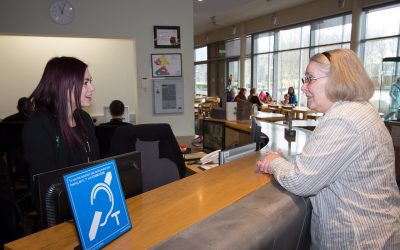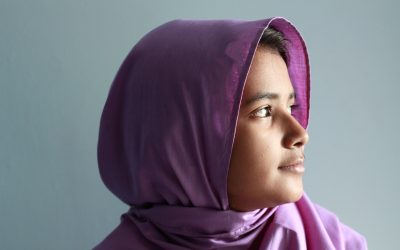Modern technology in schools is great when it’s working, but in hot and dusty environments it can be a big challenge.
Rotary Zanzibar in Stone Town had seen plenty of problems with technology, particularly second-hand laptops which struggle in the heat, dust and salty humidity.
So when visiting British Rotary members suggested Kio Kit/BRCK technology which was designed in neighbouring Kenya for use in challenging environments, the African Rotary members were intrigued.
The Kio Kit consists of a set of 40 resilient tablets which can survive being dropped from a height of 70cm. They live in a robust flight case and all the tablets are charged simultaneously.
So, with the local members of Rotary on board and support from the Brighton & Hove Soiree Rotary Club, the Kio Kits were purchased for US $5,000 (£3,750).
At last they can see, in glorious colour, illustrations of what they previously only saw in black and white on a chalk board”
The tablets were received with huge delight at Unguja Ukuu Primary School where, unsurprisingly, it took the students much less time than the teachers to work out the potential of the system!
Ann Dieckmann, from the Brighton club, explained that in Zanzibar, like much of Africa, rote-learning is the norm, so immersive, interactive learning is quite a significant departure.
The content, developed in Kenya, in delivered in either English or Swahili and is perfect for East African primary schools.
It includes stories, comprehension exercises, interactive language learning, reference materials and games which teach numeracy and thinking skills.
She explained: “As teaching skills are limited, the children really appreciate the opportunity to take control of their own learning.
“The digital classroom changes the model of the students relying on the teachers for information, which is often poorly expressed and poorly researched.
“At last they can see, in glorious colour, illustrations of what they previously only saw in black and white on a chalk board.”
In the two years since the system was purchased, the school has had many visitors from local non-governmental organisations and the Zanzibar Ministry of Education and Vocational Training to assess its potential.
As a result, other kits are now working in Zanzibar and neighbouring Pemba Island.
The local Rotary club worked with an American club to fund a second Kio Kit for the Zanzibar Learning 4 Life Foundation, an afterschool club in another resource-poor part of the island.
Photo © Richard Harris


























































